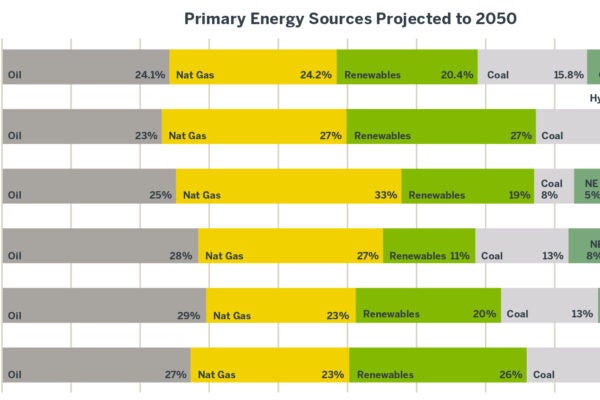When Choosing Co-Founders, Entrepreneurs Have a Gender Gap
Women use more flexible strategies than men do, balancing personal chemistry against credentials and experience
Based on the research of Steven Gray, Jamie Strassman, and Kendall Yamamoto

One of the most important decisions an entrepreneur can make when launching a business is choosing the right co-founder. Should compatible personalities guide the choice? Or should the priority be someone who brings resources to the startup? How do entrepreneurs make this decision if they must choose between these two options?
New research from Texas McCombs finds there’s a gender gap in making this choice.
In a study of entrepreneurs forming early-stage ventures, Steven Gray, assistant professor of management at Texas McCombs, finds that men consistently prioritize co-founders who bring knowledge, skills, and experience. Women, by contrast, tend to favor co-founders with whom they have personal chemistry.
But unlike men, women can adapt and take a different tack if it will benefit the venture. They favor strategic flexibility in selecting a co-founder.
“Men don’t really change their strategy or approach,” Gray says. “Women are flexible, adjustable, and adaptable across situations. They respond to the unique circumstances of their venture in making these choices.”
Earlier studies on the role of gender in choosing a startup partner have been conflicting. Some found women are likely to select co-founders they like, who feel familiar and trustworthy.
But other research found that women prefer partners who have resources, as a way to counteract biases that they and other underrepresented entrepreneurs face from evaluators. Such resource-seeking bolsters the legitimacy of a venture in the eyes of investors. It’s also the approach men typically choose.
With Travis Howell of Arizona State University and McCombs doctoral students Jamie Strassman and Kendall Yamamoto, Gray’s team focused on legitimacy as the key variable. They explored how an entrepreneur’s own legitimacy — in terms of credentials and abilities — affects the choice between chemistry and resources.
In three separate analyses — ranging from profiles on an entrepreneurial matchmaking platform to surveys of partners in a startup incubator — they found a consistent set of lessons.
- Entrepreneurs who prioritized partners with high-level experience and skills received higher ratings from potential investors.
- Entrepreneurs who prioritized interpersonal chemistry with a co-founder had more stable ventures and were less likely to disband during the first year.
- Women changed their co-founder strategies depending on their personal levels of legitimacy.
When female founders had high levels of experience and skill, they tended to seek co-founders with whom they could work well. But where their personal legitimacy was low, they tended to look for partners with resources, who could boost their legitimacy in the eyes of evaluators.
Both approaches have their advantages, Gray says. What’s striking is that women pick a strategy that fits the circumstances. Male founders, by contrast, may be shortchanging their ventures by seeking only credentials and placing little importance on personal compatibility.
“We couldn’t find a scenario in which men came to prioritize or value, to a greater extent, the chemistry side of the equation,” he says. “When you think about pulling together a founding team, you really need both ingredients.”
“Credentials or Chemistry? Entrepreneur Gender and Cofounder Selection” is published in The Academy of Management Journal.
Story by Sally Parker
About this Post
Share:


